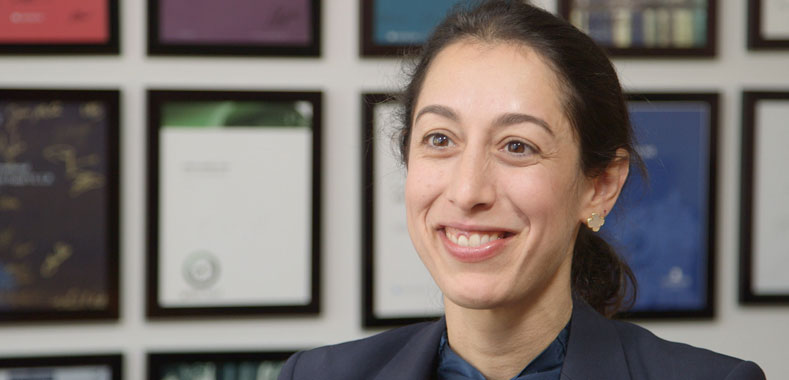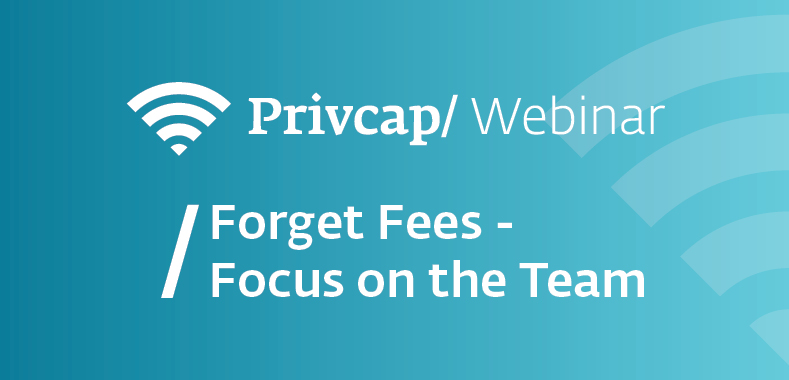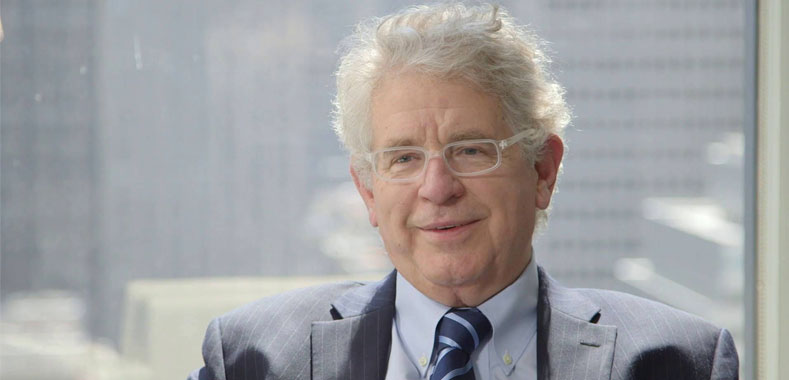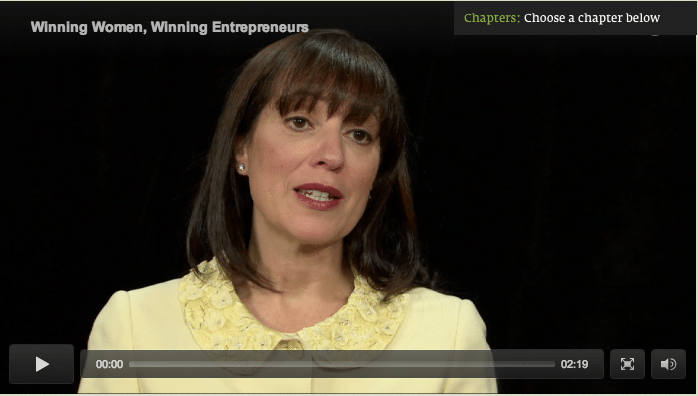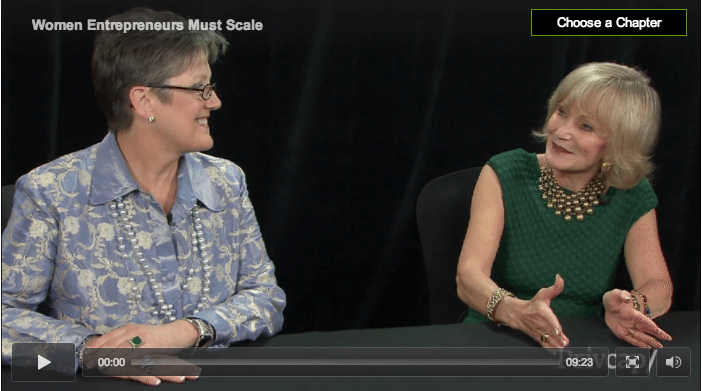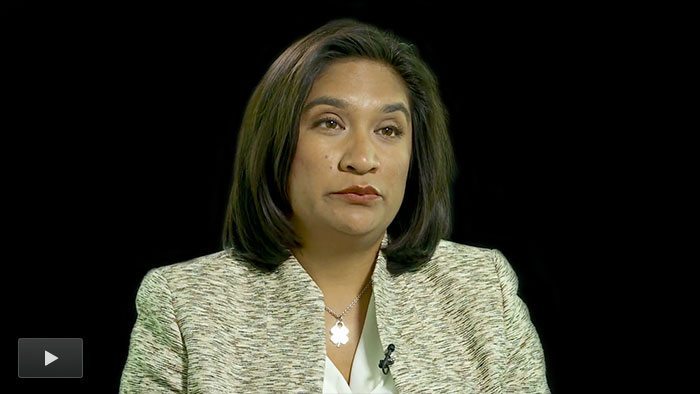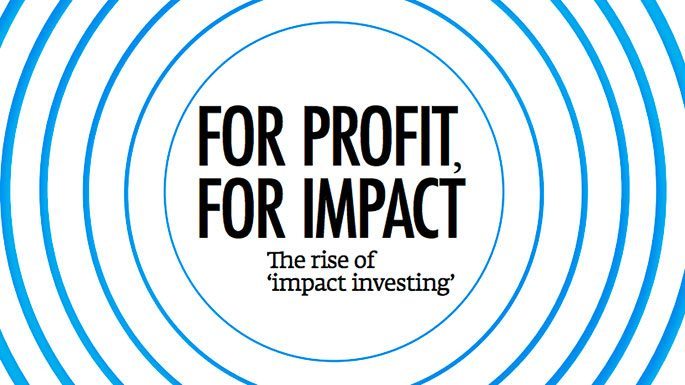Women, Private Equity and Career-Building
As private equity has grown and transformed, so too has the participation of women within the market. Privcap organized a webinar conversation between four senior female executives playing varying roles in the private equity industry. In a recent Privcap Webinar, the four compared notes on their own careers and gave advice to younger professionals seeking to map out their own careers. What follows is an edited transcript of that conversation.
The Experts:
- Lori Sabet, Managing Director, Chief Human Resources Officer, The Carlyle Group: “When a deal is hot, a deal is hot, and that’s 24/7. But when it’s a little bit slower, it’s up to the individual to own their life balance.”
- Robin Painter, Partner, Co-Head of Private Equity Funds Group, Proskauer Rose: “After doing this for so many years, you’d think you’d seen it all, well you never see it all. And I think that’s the excitement.”
- Sarah Kim, Managing Director, Halyard Capital: “The irony is that being one of a few actually has its advantages.”
- Kerrie MacPherson, Principal, Financial Services Office, North American Entrepreneurial Winning Women Executive Sponsor at EY: “The most recent studies done indicate that even today, only about ten percent of the senior roles in private equity are filled by women.”
Transcript:
David Snow, Privcap: Hello. This is David Snow from Privcap. Welcome to our webinar today. The title of our webinar is Women, Private Equity, and Career Building. The private equity industry has developed quite a bit over the years and that has included the increasing participation of women at every level and we’re going to hear from four veterans of the industry about their careers and how they’ve built successful careers within private equity. I’m going to turn the proceedings over to our moderator, Kerrie MacPherson of EY. I want to remind the audience that they will have the opportunity to ask questions and our experts will be very happy to answer these at the conclusion of the webinar. So without further ado, I’d like to welcome Kerrie MacPherson from EY.
Kerrie MacPherson, EY: Thank you David. Good morning. I’m a partner at EY and over the course of my career have had the chance to interact with private equity in two particular roles. I led EY’s America’s Transaction Support, or financial due diligence business for several years. And at that time, about fifty percent of that business involved working with private equity firms, either on the buy or the sell side. And more recently, I’ve moved into a role where I lead EY’s relationship with a couple of the firm’s largest global accounts. In addition, I’m executive sponsor of EY’s North American Entrepreneurial Winning Women Executive program, designed to identify a select group of what we call second-stage female entrepreneurs that our panel of independent judges assess as having a business with the potential to scale. And then through a combination of leadership development and connecting these entrepreneurs to sources of capital and networks, we help them do just that.
As you can imagine, private equity plays a major role in enabling many of those women to dramatically grow their businesses. So we’re thrilled to sponsor this webinar with Privcap because we understand that PE is very important to our economy and that women are very important to private equity. And so with that, I’m going to ask Lori Sabet to introduce herself.
Lori Sabet, The Carlyle Group: Thank you. Lori Sabet from the Carlyle Group. I joined Carlyle about thirteen and a half years ago when we were two hundred and fifty employees and I was their first human resources employee. We now have over fifteen hundred employees in thirty-four offices and across twenty-one countries. So the firm has definitely grown and evolved during this time. And it’s been really exciting and I’m also thrilled to be a part of this panel.
MacPherson: Thanks Lori. Robin?
Robin Painter, Proskauer Rose: My name is Robin Painter. I’m an attorney who specializes in representing funds, primarily in fundraising but also as their outside general counsel, and we do co-investments and secondary transactions and so forth for our clients. We also represent a large number of the global limited partners who invest into the asset class. I started doing this in 1985, so before Botox, and at the time we were a relatively small group. In fact, there wasn’t even really a word for what we were doing that early on. Fast-forward to today, we now have a hundred professionals that are spread around the globe who service our client base in this area and I’m really excited to be part of this panel.
MacPherson: Terrific. And Sarah, could you introduce yourself.
Sarah Kim, Halyard Capital: Thank you Kerrie, Lori, and Robin. This is Sarah Kim and I’m Managing Director at Halyard Capital. Halyard Capital is a New York based private equity firm and we focus on investing in middle market companies, and we invest in certain sectors included tech-enabled business services and information data analytics in communications sectors. I joined the firm about six years ago and I am very happy to share my experience in the private equity world. And previous to my private equity experience, I had been at a larger institution at a bank, so I can share that insight as well. And I also sit on a steering committee for an association called Women’s Association of Venture and Equity called WAVE, I encourage women on this call to check it out and come join us in some of these networking events.
MacPherson: Sarah, I’m actually going to turn the first question to you and then Lori and Robin, feel free to jump in. The most recent studies indicate that even today, women fill only about ten percent of the senior roles in private equity. The number is slightly higher in Asia, close to thirteen percent. I’m interested in how you built your career in private equity and what has kept you engaged despite being one of the few women at a senior level.
Kim: First of all, that number, ten percent surprised me. I thought it would be actually lower than ten percent but I’m glad to see that it’s up to ten percent now. The irony is that being one of a few actually has its advantages. In fact, it can actually help fuel your personal and professional growth. It’s true that whether it’s fair or not, there tend to be higher expectations. But from my personal standpoint, I believe that has kept me more disciplined and continuously compelled me to seek more and do more and better. I’ll take the challenge; it’s about the outcome. But the disadvantage is that being one of a few, you can’t really hide if you make mistakes and that’s where the risk comes in. You just can’t lose confidence; you have to be willing to take the risk because the alternative is costly.
MacPherson: Great, thank you. Robin or Lori, anything to add?
Sabet: I’m proud to say actually that at Carlyle, we are above the ten percent. We’re at about thirteen percent and I think we’ll be pushing toward fifteen after this year-end round of promotions. We just had our partner and MD (managing director) process and over fifty percent of our new partners are either women or minorities and over thirty percent of our new MDs are women. So that’s a twenty-seven, twenty-eight percent. But we work really hard at this at Carlyle and I would say the last five, six years, and especially the last couple of years, those are great stats, but we know we can and should do better. Our LPs are asking for better as well. I’m sure many of you are experiencing the questionnaires are more and more you’re seeing what are your diversity stats.
I would say at Carlyle though, the culture has provided me the advantage of not worrying about being one of the few. It’s first, being a competent professional and then gender comes in second. I’m also surrounded by being in what we call our investor services or back office, by over thirty percent of the senior professionals are women, and that’s about over forty-five percent in the States. I’m surrounded by really strong women and strong men as well. We have a diversity committee and several other initiatives we’ve put in place. One that I am particularly proud of is our women’s initiative or what we call our ERG, Employee Resource Group, where we gather all the women together in our Washington office, which is about two hundred and thirty. Because when we gather the women together, it’s not just senior women, it’s women of all levels, all positions including executive assistants.
And we have quarterly leadership speaker series. And we have had two of the women from our board come and speak, different senior women in the community, some senior men as well. And it’s not just open for our women, but to men as well, and these have been really well received. And so, while we’re proud and we want to keep at the forefront, it is a primary initiative for us and I think it has to be for all firms if they want to grow their stats or the representation of women and minorities.
MacPherson: Lori, that’s great. And if I’m correct, those recent promotions that you just went through have not yet been announced, so I’m going to assume there are a lot of Carlyle women who just heard those impressive numbers and are very excited.
Sabet: I hope they are because they are impressive, yes.
MacPherson: That’s great. Robin, I’ll turn to you on this and it’s just a build on what we’ve heard so far. What skills do you think are particularly important for a professional in private equity? And does that have a particular impact or importance for women?
Painter: The industry has really changed. Back in the early days of private equity, it was a very inefficient industry. And there was a lot of opportunity and your ability to react quickly and gain expertise in a particular area was sort of valued over all else because everybody was really in build mode. I think when you fast forward to today, where private equity is very much part of the global economy, it is clearly a maturing asset class, the opportunities are more difficult to find and it’s much more difficult to differentiate yourself against your competitors, as a general rule.
Different skills come into play and some of those skills are very subtle interpersonal skills that, frankly, I think women are pretty good at. It’s a great time in the industry for women to really step up and show some of the leadership because I think some of these subtle skills will serve us very well.
MacPherson: I think Robin’s teed up some interesting things there. When you talk about deals being harder to find, and certainly most of the large private equities, and Carlyle would certainly be in this group, have really expanded operations globally. How has that played into creating opportunities for women? Lori, any comments on that?
Sabet: It has provided opportunities for all employees and anytime that we do a search at Carlyle, we want to see the top candidates out there, the top female candidates, the top minority candidates. So it’s a criterion that we have of our search firm when we’re doing searches. But our growth absolutely has provided opportunities and I think the stats that I just recently shared are proof of that and I hope that we can continue to do that. I would just add too, it is the softer skills that you have to posses. We all assume that someone at the senior level and coming into private equity is going to have the technical skills and the education. But you have to really thrive and get energized in this environment and industry because it is so fast paced and it’s evolving.
It’s not a nine to five for anyone, male, female, executive, EA. And you have to be comfortable with that and be a role model to other women on how you can be successful but also have a balance in your life or family and outside interests. Those are the qualities that a woman needs to, when coming into this industry, thrive and get energized, have confidence and being comfortable in a room to have a voice because you’re in a room, ninety-nine percent of the time with people who are at the top of their game. And then this desire, sense of obligation to help other women advance in their careers and make it just a little bit easier to help them figure out how to maneuver through it. When I think about how women succeed, I agree that it is more on the softer skills versus the quantitative, the technical, and educational background.
MacPherson: So essentially those quantitative and technical skills are the price of admission.
Sabet: Exactly.
MacPherson: So in your experience, that it’s the ability to differentiate in those less technical areas, but really important in interpersonal things that have created opportunity.
Sabet: Absolutely. And being comfortable in your own skin.
MacPherson: Right. Sarah, does that fit with your experience as well?
Kim: Absolutely. I agree with both Lori and Robin. In terms of the skill sets, it sounds very basic but obviously in the private equity world, analytical skills are important, but specifically the ability to see that flaws and weaknesses in the business, it’s what the company is not seeing and not being able to do and analyze why, because our success is driven by really creating value. So when we invest in the company, it’s often what the company has been able to do that that represents a value creation opportunity. So the analytical skill is very important. As well as the creative thinking, you know what I mean, is that you see so many different ideas and meet people and it’s really the ability to connect various ideas and competencies and people and really connect the past, present, to the future. So I think those are very, very important skill sets and it’s pretty consistent with what Lori and Robin have said.
MacPherson: I’m putting on my entrepreneurial winning women hat here for a moment. Given that sort of emotional intelligence as being an important factor that you’ve all described, are there particular things that you expect when you’re dealing with an entrepreneur who is looking for investment from private equity? Are there particular things that will be really noticeable and really detrimental if they’re absent? Sarah, I’ll start with you.
Kim: We actually own a company and it’s largely ninety percent women, I think that their skill sets are patience and flexibility. That really drives well with what we do because PE is a very long-term investment cycle and it takes time and patience to grow and build and transform and re-transform. So I think that women, I find they tend to be very patient while remaining flexible. And in today’s market when dynamics and behaviors change constantly, and even especially today in a, you know, rapidly revolving technology driven world, it’s all the more important.
MacPherson: Certainly many of the women that I come in touch with as part of entrepreneurial winning women, have chosen to start businesses because they were in large corporate environments that didn’t give them the opportunity to really exploit that flexibility and that creative thinking that you’re talking about. So it’s great to hear that those are things that you’re particularly looking for. There is a question that I think is probably on the minds of many about a perception that private equity not being very family friendly. That might keep women from entering private equity as a career choice. Lori, you talked about flexibility and getting energized by the deal and the excitement, can you talk about some of the women that you’ve seen be really effective and successful and some of the things they’ve done to get past that.
Sabet: Absolutely. I think there is that perception. It depends a lot on the firm and the stage that they are with how they’re managing. And you know, it used to be very much so, before they have all the technology that we have and people being connected 24/7 about being in the office. But now, the technology provides much more flexibility. And that’s the key to success for women, but also men in this industry, and many industries for that matter. As I said, this is not a nine to five industry, but it doesn’t mean that you have to be in the office for twelve hours. You know, you can have that flexibility. I see a lot of women, and again men, who are making it to their children’s games, are making it to school plays, or getting out, not just people who have children, but who want to have a balance in their life, whether it be through volunteering or external boards.
When a deal is hot, a deal is hot, and that’s 24/7. But when it’s a little bit slower, it’s up to the individual to own their life balance and not look to the firm to say, you can work this schedule or you can work that schedule. It’s obviously something you have to work out with your supervisor. But I’ve learned over the years that it’s not about policies that make it work, but about relationships between supervisors and people bringing forth ideas on how they can manage their schedule. I’ll give one last example: we have a woman who is the CFO for our Asia funds and also for one of our funds in Africa. And she’s based here in Washington. So she could be 24/7, and oftentimes is, but she also has small children. So she is out the door consistently at five, spends time with her children, but often is getting back on then afterwards.
Now she is managing that schedule and we look to her to be a role model for other women – and again men – who are in the firm on how you can be successful with it. But it’s definitely about prioritizing and I think it’s also about you can have everything, but you probably can’t have it all at once. But my advice would be, you own it, you drive it, you own it, instead of looking for the firm to tell you what you can do and can’t do. You bring it up to the firm first.
MacPherson: Robin, I’m sure that your experience will be exactly the same because advisors on a deal, at least in my experience, are working at the same pace as the private equity deal people are.
Painter: Except that you might have four deals going on at once for four different clients. So the service business is certainly a tough model, there’s no question about that. I totally agree with the prior comment. I guess I have a few other observations though and maybe this is a little controversial. So when my kids were young, we had Blackberries, right, if I was out, I was out. You’d have to call in and check your voicemail, so that was really, really stressful. But I do think that the technology really helps and I also think that one thing I learned is, you really don’t have to over share necessarily. I found when my kids were younger, if I had to be out for a doctor’s appointment or a preschool event or something, I felt the need to say, well my son has a preschool event, I really need to be out this morning.
And then it dawned on me that, my male counterparts would probably have just said, I’m unavailable this morning, I’ll be in at eleven. And not felt the need to sort of over share what was going on. And it was something I kind of had to learn that, maybe if you have to be out, you don’t necessarily have to tell the world why, you’re just unavailable.
Sabet: I agree Robin, I completely agree with that.
Painter: And that’s harder earlier in your career, you feel like you have to be so transparent and sometimes, you know, maybe that’s not such a great idea.
MacPherson: It goes perhaps into the category of too much information. Though I will tell you, at EY, and certainly at the more senior levels, to be pretty transparent about why we’re not places when we’re not places. Because like all of you have said, having balance, having a life that includes more than work is really important. And so we do try to encourage that openness to make sure that it becomes apparent that it’s okay to have a life. In fact, it’s actually preferable. So those are all good pieces of advice I think that you’ve shared. I’m going to shift gears here for a minute, and I’m going to ask each of you to reflect for a second and talk about what’s been the biggest surprise of your private equity career, either positive or negative. And I’ll leave it to you to decide which one of you will begin.
Sabet: I would say after thirteen and a half years how much I still love it and how hard I’m still working in my forties. Not that I thought I’d be coasting, but I’m working hard because I absolutely love it and the passion I have for it. And how quickly it goes by and how much control I really can have over it. But I completely agree that you can come into your own self and create that kind of ownership of your career and your schedule. But that has been the biggest surprise is how much I just absolutely love it and I think because this is such an evolving industry, it has kept a lot of people in the field. You see, the tenure used to be much shorter and as it has grown, I think it continues to grow, people are sticking around because you can have five jobs in a five year period because of how much it’s changing. So that would be mine.
Kim: I would say the surprise in my career is actually the people. I walked into the financial world and PE more recently thinking people are a lot more than intelligent beyond the Excel spreadsheets. They are extremely multi dimensional, intellectual, knowledgeable, and passionate about what they do. That really was a very positive surprise. And also the negative is also the people. There is somewhat of distrust in some ways. But I think that comes with, if you were in any professional world, I think it’s something that you have to face. But by and large, it’s definitely people that really surprise me in a very positive way.
Painter: This is Robin. What surprises me most looking back at it is just how rapidly the private equity has penetrated the global economy, right. So I think whether you’re working at a relatively small U.S.-based middle market private equity firm, or a large global firm with multi strategies or you’re a service provider to any or all of those. I think the one thing that’s really changed is it is somewhat of a twenty-four hour, there are always multiple time zones involved and multiple cultures involved. That was something that just happened so quickly in one generation. I think it can cause some lifestyle issues, but on the other hand, it makes it so incredibly interesting because there’s always a different angle or a different opportunity that you haven’t seen before that comes. After doing this for so many years, you’d think you’d seen it all, well you never see it all. And I think that’s the excitement.
MacPherson: Well clearly I think what resonates through all of those responses is the fact that there is an energy and an excitement about this business that’s hard to replicate anywhere else. And it’s clear that it is one of those things that get in your blood. Lori, I was particularly interested in your response about this being clearly at one time, this was a young person’s game and people got in and got out. But I agree with you that as we get better at this, as the flexibility increases, there are more and more people who are choosing to make private equity their long-term career, which is exciting to see. There have been a few female-run firms that have closed recently and the question is, any suggestions as to how female or minority run forms who are looking to raise equity could overcome perception hurdles, whatever you want to call it, about their ability to be successful in this business as they’re fundraising. Any thoughts?
Kim: I don’t know which specific funds have closed down, but I actually have a contrary view. I think minority and female-owned firms have still continued to get a lot of attraction and I know when I talk to the LP base, they’re definitely looking for more of the women. I think there’s a lot of attraction there. I just want to encourage people and I meet a lot of women-owned venture capital and private equity firms and boy, they really produce great results and I don’t think that the perception has changed in that regard.
MacPherson: Great. Thank you Sarah. Robin and Lori, anything to add there or shall we move on?
Painter: I’m not really entirely sure how to answer that other than maybe it gets attention because it’s a certain category of fundraising stops or whatever. But so long as you’re sort of looking at yourself as a private equity firm and not as a minority private equity firm and hold yourself to the same standards as anyone else, which is certainly what your investors and your other stakeholders would expect, I don’t see a big issue here. And you know, representing sort of both sides of the table, I do think that the LP community hungers for different faces at the table at the firms they’re investing in. So I don’t think the demand for that is slowing at all.
MacPherson: Perfect. Let me just interject for a second here and remind our audience that they do have the ability to submit questions that we’ll endeavor to get answered before we finish up. Again, I’m going to ask you each to look back and think a little bit about is there a deal, a decision, Lori perhaps in your case, a higher move that you did not make that in retrospect you wish you had done. But does everybody have one that got away that you would do differently now?
Sabet: I will always wish I had taken an international assignment. And it may not have been to the perfect city, but the experience especially now, as the industry has gone global and the world in general, the business world, that international experience that you obtain from working in another country, is so invaluable to someone’s career. I just think of how much you can grow personally as well. So that would be my piece of advice also to individuals again, men or women, coming up the ranks to seek out those international assignments. It doesn’t have to be for five years, it may not be to, London or Paris, but boy, the experience that you’re going to get is just going to be invaluable.
MacPherson: Terrific, thanks Lori. Robin?
Painter: It’s funny – mine has a similar theme. I wish we had managed to do earlier is to have a little bit more of an open mind in terms of some of our hiring outside of the U.S. We are now finally at a place where we feel we have the right folks in place in all the major markets that we serve. But it really, really took a long time for me in particular, to get my head around the various candidates that we were seeing and being able to really think through the value that they would add. And you know frankly, in hindsight, I probably took a little too long. I’m glad that we’re finally there but that was probably the biggest learning experience for me, which is interesting because it also had sort of an international theme to it.
MacPherson: It is interesting, Robin, as I listen to that because it sounds like there’s a really good nugget of advice in there. And that is when people, men or women, are coming to organizations that deal in this base, whether on the advisory side as you are, or at one of the firms, an important part of positioning is being able to highlight the particular value add that the individual can bring to that organization. And so whether it’s language skills, experience abroad, particular industry expertise, figuring out how to package yourself and your experience in a way that differentiates you from the pack, is probably a really important part of getting into the right form and building your career in private equity. Sarah, if there was one thing you could redo or do differently, what would that be?
Painter: This is Robin, I’m happy to start with this one. You know, early on in my career and for decades really, and I don’t think I was unusual here because many of my female clients who are sort of moving up the ranks in their firms at the same time and so forth. I was very reluctant to get involved in sort of formal women’s organizations, whether it be PEWIN, or WAVE or internal initiatives. I felt like those things are distractions. And then I would say about five or six years ago, maybe just age, I started realizing how, if myself and my friends all sat around and opened our Rolodex, what kind of power we had and really started thinking about mentoring younger women and creating those networks and really monetizing those networks for women as a group.
And you know, it’s probably been the most fun thing that I’ve done the past five or six years is getting involved in some of the conferences and really working on mentoring and all those things that, for many years I kind of stuck my nose up at. And I don’t think I was alone there, we all sort of came to the same conclusion at the same time and we’re all really enjoying it.
Sabet: That’s interesting Robin, because I have seen and experienced that as well. And when we started our women’s group here, there definitely was a buzz and buzz by some of the men as well about getting together. And I found that very empowering for the women of Carlyle that what the women were getting out of it, but also it was just getting attention across the board at the firm and in a very positive way. So I too encourage younger women to get involved in organizations, just the relationships, mentors that you can meet are just really terrific and helpful.
MacPherson: Lori, while you’re talking, if I may, there’s a question that’s come in here that is directed at you and at Carlyle. Everybody was clearly impressed with the stats you quoted at the top of the webcast about the upcoming class of partner and MD promotions. And the question is, how many of those women who are being promoted have a working spouse and children versus a stay at home spouse and children versus single, with or without children.
Sabet: Well I don’t know the personal lives of all our employees, but I can comfortably say a majority of them have working spouses and have children and I can think of more than half who have small children under five. So it’s definitely not all single women or women who have a stay at home spouse.
MacPherson: That’s really encouraging. And I’m sure for your younger women, seeing all of that going on around is a very positive experience. Sarah, from your perspective, if you were going to give one piece of advice to younger women about to embark on a private equity career, knowing now what you perhaps didn’t know at the beginning, what would that be?
Kim: Ask for help. A lot of women tend to not do that. It’s okay to ask for help and the sooner, the better. A phrase such as, can you help me understand this, so I would like to more fully understand this, or how should I be looking at this? All of these questions that women shy away from raising questions or ask for help. And another thing is do not try not to compare yourself to others. Focus on yourself. What I mean by others, whether it’s male or female, their titles, their resume, ages, it can be very distracting and I would just say focus on yourself and be result-oriented.
Sabet: I completely agree with you Sarah. And it doesn’t help you. Sell yourself on your own skills and your own accomplishments, not by comparing yourself to others. So I completely agree with you on that.
Painter: The other one I would also suggest is be forgiving of yourself, because not every day is going to go perfectly and not every decision is going to be the right one. And you know, every day is a learning experience and you know I do think women tend to beat themselves up more at every stumble. It’s part of a learning process. And giving yourself permission to fail is really important.
MacPherson: If I can add to that. Not only giving yourself permission to fail, but also owning it when you do is really important. And there’s a fine line between owning failure and allowing it to sort of crowd out all the other accomplishments you’ve had. But I think it’s really important to stand up and say, you know what, knowing now what I didn’t know when I made that decision, I would make a different one, but here’s what I’ve learned from it and I’m going to change what I do going forward, can be really powerful. And it’s definitely more powerful than pretending it didn’t happen.
Sabet: I agree. And my piece of advice would be don’t make private equity or your job your life. Find an external passion, whether it is family, yoga, a board, a non-profit. And make sure that you’re building that into your life. I realized that way too late and then I jumped in and joined four boards and overdid it. But just build that in from the start. The balance of it is so rewarding and I just encourage people not to make their job their life for private equity, because it can be and then all of a sudden it’s your hobby.
MacPherson: Lori, that actually applies equally I think to any job but perhaps particularly so in an environment like this where you could go 24/7.
Painter: I have a funny story. When I was a young lawyer, we were closing a fund, it was sort of a very high profile fund of its day, and I think I stayed up three nights in a row and so forth. And my mentor came into my office, I’ll never forget he came into my office, saw me sort of sitting on the floor, you know, marking up documents, whatever I was doing. He took one glance at me and said, these people are not going to show up at your funeral and then he walked out. I thought hmm, that’s good advice.
MacPherson: Good reality-check.
Sabet: It’s actually very good advice.
MacPherson: Sarah, maybe you can take a crack at answering. Someone has asked, do you think a woman can be a partner or MD of either a private equity firm or an advisory firm that deals with PE working part time.
Kim: First of all, absolutely yes. I am an example. I actually work four days a week and my previous firm was a much larger institution. I actually worked in multiple cities, my family moved to Philadelphia, but I kept my career in New York and I actually got promoted and I was a head of a group. And so yes, and I can tell you both from a larger institutional perspective and as far as my current firm, the answer is yes. And when I said earlier that what was one of the positive surprises.
MacPherson: You know Sarah, it seems to me as well that this is one of those industries where at the end of the say if you produce the results, it really doesn’t matter whether you do it–
Kim: Absolutely.
MacPherson: –five days, four days, eight days, it’s what you get done and how you do it that works for you, your colleagues and your family that really is the balance that you need to find.
Kim: Absolutely, yeah.
MacPherson: I want to say thank you to our three panelists, Lori Sabet from Carlyle, Robin Painter from Proskauer Rose, and Sarah Kim from Halyard Capital. I don’t think we could have had a better group of senior women who have really made a difference in the private equity space. You heard how energy generating and exciting this business is. You heard some great nuggets of information about having balance in your life that only you can create. The idea that international and international experience is important in private equity more so than ever before, and you heard that this is a business where you can have balance, flexibility, a great career and a great life. So with that, I’m going to say thank you and we’ll wrap it up for today. That’s the webinar on Women, Private Equity, and Career Building. Thank you for joining us.
A full transcript of the Privcap webinar, “Women, Private Equity and Career Building,” with senior executives from The Carlyle Group, Halyard Capital, Proskauer Rose and EY.

